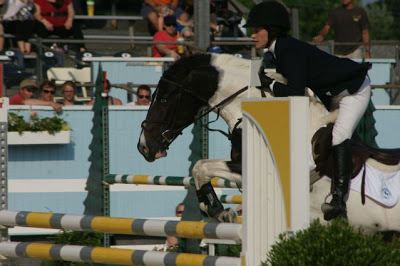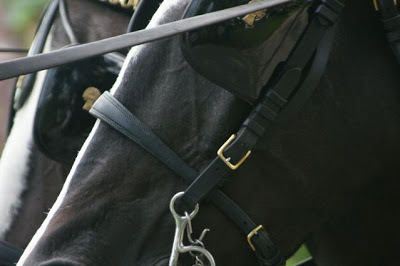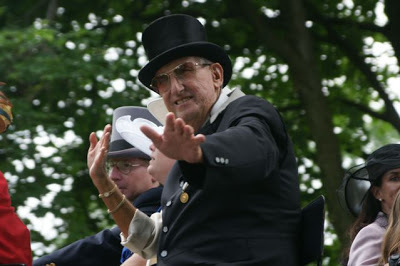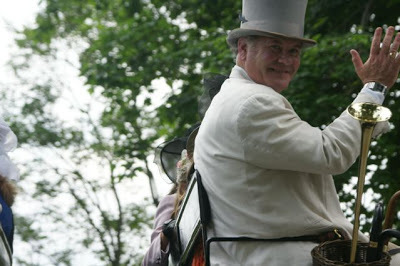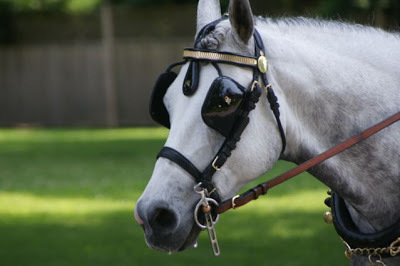Beth Kephart's Blog, page 183
June 1, 2012
in the stables, on the grounds: early morning
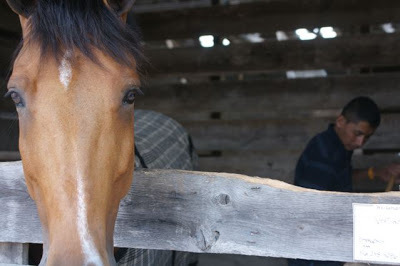



Early this morning I slipped out of the house and down the quiet of the street toward the horses.
They were waiting for me.
They will be gone in a few days.
I miss them already.




Published on June 01, 2012 12:19
The view from Scholastic (and what makes a children's book great)

After all was said and nearly done at the Publishing Perspectives "What Makes a Children's Book Great?" Conference, we gathered on Scholastic's rooftop lounge and took a look out across New York City. What a view, and what a day.
Dennis Abrams, who hosted my panel, has captured the content of this conference impeccably (as the man tends to do). Here's his report, with help from Alex Mutter.




Published on June 01, 2012 05:15
May 31, 2012
Publishing Perspectives Conference: the day that was
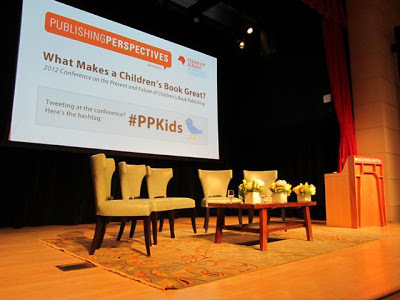
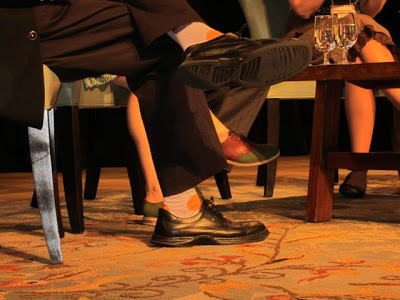
If I am too exhausted to state with any inch of eloquence how grateful I am for today—for being included in a well-run, truly substantive, inviting conference, for sitting on a panel among greats, for meeting, at long last, the delightful Jenny Brown, for spying on Roger Sutton's socks, for a chance to hurry through a loved city's streets, for an excuse to visit the extraordinarily wonderful Tamra Tuller, Michael Green, Jessica Shoffel, and Jill Santopolo, for the opportunity to meet the funny and fun and winning Lauren Marino—if I am too exhausted, might I at least share these two images of a conference I won't forget?
Thank you, Ed Nawotka and Dennis Abrams of Publishing Perspectives for making this day what it was. For making me a part of it.




Published on May 31, 2012 18:29
May 30, 2012
The Lifeboat/Charlotte Rogan: Reflections

By now you know the story of Charlotte Rogan. Princeton educated, a mother of triplets, the wife of a lawyer, a quiet writer in the quiet hours, Rogan had written several novels and tucked them away before she finally, "practically on a whim," according to the New York Times story, sent what would become The Lifeboat to an agent. The rest is history. After twenty-five years of writing in near secret, Rogan has become an overnight success.
I read The Lifeboat yesterday. I remain in the thrall of its intelligence. There's not a sloppy sentence in this book, nor an excess line. Grace, its heroine (?), is masterfully complex, and so are the issues that unwind across these pages. It is 1914. A ship has gone down in the Atlantic. A crowded lifeboat is cast about on open seas. Easy rescue doesn't come. Survival is at stake—but whose, and at what cost, and what will the civilized say about the surviving later, in a court of law? Who is sane, who is acting, what is true, and what are the options if there is no land in sight and water is short and dangerous factions have formed? Is it possible not to choose a side? Can we ever adequately explain, even to ourselves, the choices we make in extreme, inhuman moments?
Rogan further complicates her story by further complicating Grace, the young woman, recently married, who is on trial with two others when the book begins. Grace has, in some ways, bludgeoned her way into the high society she craves. She has gained her husband at the expense of another woman. She may have gained this seat on the lifeboat at the expense of something else. Is she a good person? Do we root for her? Are any of us untainted?
Psychologically taut, finely paced, quietly but masterfully suspenseful, The Lifeboat, despite its setting on the high seas, never leaks from itself, never goes off on a stray tangent. It's a remarkable debut, as focused a novel as I have read in a long time.




Published on May 30, 2012 07:04
May 29, 2012
Melissa Sarno on Small Damages

Melissa Sarno (you have heard me speak of Melissa Sarno and her blog, This Too... ) was away, and we missed her. She was away because she'd married the man she loves and traveled with him to a country I love, and we were happy for her, but we missed her.
She is home now. She is home bearing gifts—photographs and stories and this most astonishing review of Small Damages, which she read a few days before her wedding.
You can tell, I know you can, that Melissa is a writer, too. A very special one—her work full of color and empathy and musical sophistication. Her review contains these words. They made me cry.
I think a lot of people would say that it takes courage to embrace who
you are. But, I believe, it takes even more courage to walk away from
who you are in order to find out who you can be. To capture that in
these few words means they are everything words. To explore this theme
in a book means Small Damages is an everything book.




Published on May 29, 2012 17:04
ISTANBUL/Orhan Pamuk: Reflections
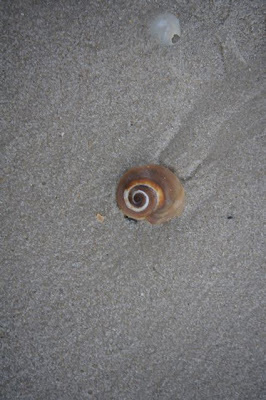
Some memoirs wind you back through the crowded streets of
the hero’s childhood.
Some wend
you through the neural pathways of the author’s craving, omnivorous mind.
Istanbul,
by the Nobel Prize winning Orhan Pamuk, does both. Sebaldian in scope, suffused with gorgeous black-and-white
photographs of historic Istanbul, this is an exploration of a city, a man, and
a particularly rich, involving melancholic state known as hüzün. “The hüzün of Istanbul is not just the mood evoked by its music
and its poetry," writes Pamuk, "it is a way of looking at life that implicates us all, not only
a spiritual state but a state of mind that is ultimately as life-affirming as
it is negating.”
Istanbul
sprawls like the city sprawls. Its
sentences can sometimes consume entire pages as they evoke landscapes and
childhood rooms, gossip and history, painters and writers. Pamuk takes readers on a journey—his journey—as a boy in love with his mother, as a teen in love with
his city, and as a young man who ultimately chooses writing over painting. Pamuk is tenderly and brilliantly tortured. He is obsessed with ruins and all the
loss, and beauty, that ruins imply:
But what I am trying to describe now is not the melancholy of Istanbul but the hüzün in which we see ourselves reflected, the hüzün we absorb with pride and share as a community. To feel this hüzün is to see the scenes, evoke the memories, in which the city itself becomes the very illustration, the very essence, of hüzün. I am speaking of the evenings when the sun sets early, of the fathers under the streetlamps in the back streets returning home carrying plastic bags. Of the old Bosphorous ferries moored to deserted stations in the middle of winter, where sleepy sailors scrub the decks, pail in hand and one eye on the black-and-white television in the distance....




Published on May 29, 2012 06:13
May 28, 2012
Imagine: How Creativity Works/Jonah Lehrer: Highly Recommended to .....

This morning I made a list of all those with whom I want to share Jonah Lehrer's Imagine: How Creativity Works. My corporate clients and friends. My writer friends. My family. My son. You, obviously.
Then I went back through the book to see if I might find the right single seductive passage to quote—that one book slice that would enthrall (ensnare?) my imaginary book party goers. My father, a businessman just returned from Israel, would no doubt like those pages of the chapter "Urban Friction" that detail the determined smallness and interconnectivity of that country, and then reveal how Israel "—a tiny sliver of land on the Mediterranean, about the same size as Vermont—has nearly three times the amount of VC funding per capita as the United States and thirty times the average of Western Europe."
My brother, a physicist leading a cadre of top thinkers in a research lab, would enjoy, I suspect, those parts of the book that talk about genius and what happens when individual genius folds and bends with the genius across the aisle.
My writer friends would be intrigued by the "gradient of awareness" passages that detail just why it is so hard for us to find our own mistakes (or pure badness) in prose written in the heat of a recent hour. Or those passages that reveal what parts of the brain entertain autobiography. Or those insiderly looks at Bob Dylan's writing process. Or the bits about sleep. Or the flavorful reminders of the importance of imperfection.
My corporate clients might hurry toward those passages about the rise of InnoCentive (why nonexperts can sometimes solve the technical problems that have eluded expert teams for years) or the failure of traditional brainstorming or the power of random conversations and coffee breaks. My advertising-invested son would benefit from pages on WK12, the Widen+Kennedy advertising school, and the quest for the individual voice. We're all going to love the "Toy Story 2" tale (even if we've heard much of it before). And I know a guy who works to change the shape and fate of Philadelphia who would love the whole book, no doubt, but would particularly enjoy the parts about why cities exist, and what happens when pedestrians walk fast, and why strange encounters with strangers (even if annoying, sweaty, hot) are not just inevitable but essential.
Then there are my blogging friends—many of you, most of you, who have become far more than blogging friends. Your interests are broad. Your intentions are good. Your desire to have the right impact changes lives; it certainly has changed mine. I choose this quote for all of you, then. I choose it for us—ripe, weird, original, and (thankfully) still striving.
If the Internet is going to become an accelerator of creativity, then we need to design websites that act like our most innovative cities. Instead of sharing links with just our friends, or commenting anonymously on blog, or filtering the world with algorithms to fit our interests, we must engage with strangers and strange ideas. The Internet has such creative potential; it's so ripe with weirdness and originality, so full of people eager to share their work and ideas. What we need now is a virtual world that brings us together for real.
[image error]




Published on May 28, 2012 08:18
horses jumping
Published on May 28, 2012 03:23
May 27, 2012
the horses take the streets
Published on May 27, 2012 16:40
Imagine/Jonah Lehrer (and thoughts on failure)

Among the books I am now reading is Imagine by Jonah Lehrer, the same writer who brought us How We Decide and Proust was a Neuroscientist. The History and Sociology of Science major in me likes this kind of book—the melding of popular questions with current science, the anecdotal proof points that take us briefly into the minds of Bob Dylan (I've seen him perform), say, or Milton Glaser (I met him in his office), or the guy who had the 3M cellophane tape epiphany (I use a lot of that tape). I like to measure what I know about my own creative process (such as it is) against what Lehrer and his cohort of experimenters have to say. Imagine is the right read for this Memorial Day weekend.
I have read, then, about the difference between divergent and convergent creativity, the role of a little fold of brain matter near the right ear, the importance of being frustrated, the saturating power of melancholy, and the need for constraints (structural frameworks for poets, to name one example). I have read about the hazy conjugating glory of near sleep and the necessity of walk taking (I depend on these states) and about the need for deliberate distractions.
For example:
The unexpected benefits of not being able to focus reveal something important about creativity. Although we live in an age that worships attention—when we need to work, we force ourselves to concentrate—this approach can inhibit the imagination. Sometimes it helps to consider irrelevant information, to eavesdrop on all the stray associations unfolding in the far reaches of the brain. Occasionally, focus can backfire and make us fixated on the wrong answers. It's not until you let yourself relax and indulge in distractions that you discover the answer; the insight arrives only after you stop looking for it.
In Imagine I recognize so much that is true about my own work. I fail when I hold on too tight, for example. I fail when I put myself on a schedule. I fail when I don't let myself walk away. I fail when I have too much literary freedom—when I do not give myself at least one or two constraints to work against and commune with. I fail when I try to write the first draft at a keyboard; I need to be on the couch or the deck or by the sea with pen and paper in hand. With first drafts I am Dionysian. With later drafts, Apollonian.
Buy Imagine. You'll see what I mean.




Published on May 27, 2012 05:15


